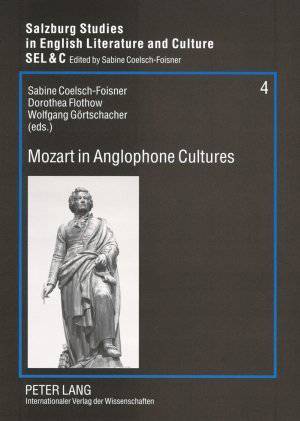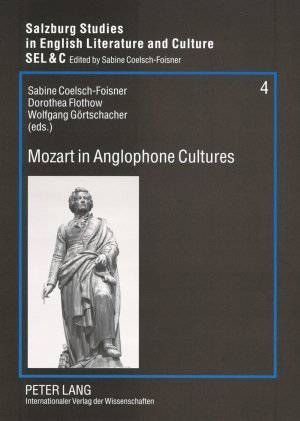
- Afhalen na 1 uur in een winkel met voorraad
- Gratis thuislevering in België vanaf € 30
- Ruim aanbod met 7 miljoen producten
- Afhalen na 1 uur in een winkel met voorraad
- Gratis thuislevering in België vanaf € 30
- Ruim aanbod met 7 miljoen producten
Zoeken
Mozart in Anglophone Cultures
€ 140,95
+ 281 punten
Omschrijving
Mozart in Anglophone Cultures brings together papers given at the 15th Salzburg Annual Conference on English Literature and Culture held in 2006 to commemorate Mozart's 250th birthday. The volume concentrates in particular on the reception of Mozart and his work in English literature and film, on English translations and adaptations of Mozart's operas and songs, on the performance history of Mozart's operas on stages in the English-speaking world, and on relationships and influences between Mozart and English composers. Aspects covered in the volume include: Peter Shaffer's Amadeus as historiographic metafiction, the reception of Mozart in Australia, Mozart's works as intertext in James Joyce's Ulysses and Barbara Trapido's Temples of Delight, Mozart's influence on American ballet and W. H. Auden's re-writing of The Magic Flute. In its focus on the creative reception of Mozart rather than on Mozart's oeuvre, this book hopes to show the importance of a living myth in various cultural traditions (Victorian, Modernist and Postmodernist) - and, conversely, to reveal Mozart and his own age's mode of listening as being equally embedded in cultural traditions.
Specificaties
Betrokkenen
- Uitgeverij:
Inhoud
- Aantal bladzijden:
- 186
- Taal:
- Engels
- Reeks:
- Reeksnummer:
- nr. 4
Eigenschappen
- Productcode (EAN):
- 9783631562567
- Verschijningsdatum:
- 30/01/2009
- Uitvoering:
- Paperback
- Formaat:
- Trade paperback (VS)
- Afmetingen:
- 148 mm x 210 mm
- Gewicht:
- 235 g

Alleen bij Standaard Boekhandel
+ 281 punten op je klantenkaart van Standaard Boekhandel
Beoordelingen
We publiceren alleen reviews die voldoen aan de voorwaarden voor reviews. Bekijk onze voorwaarden voor reviews.







